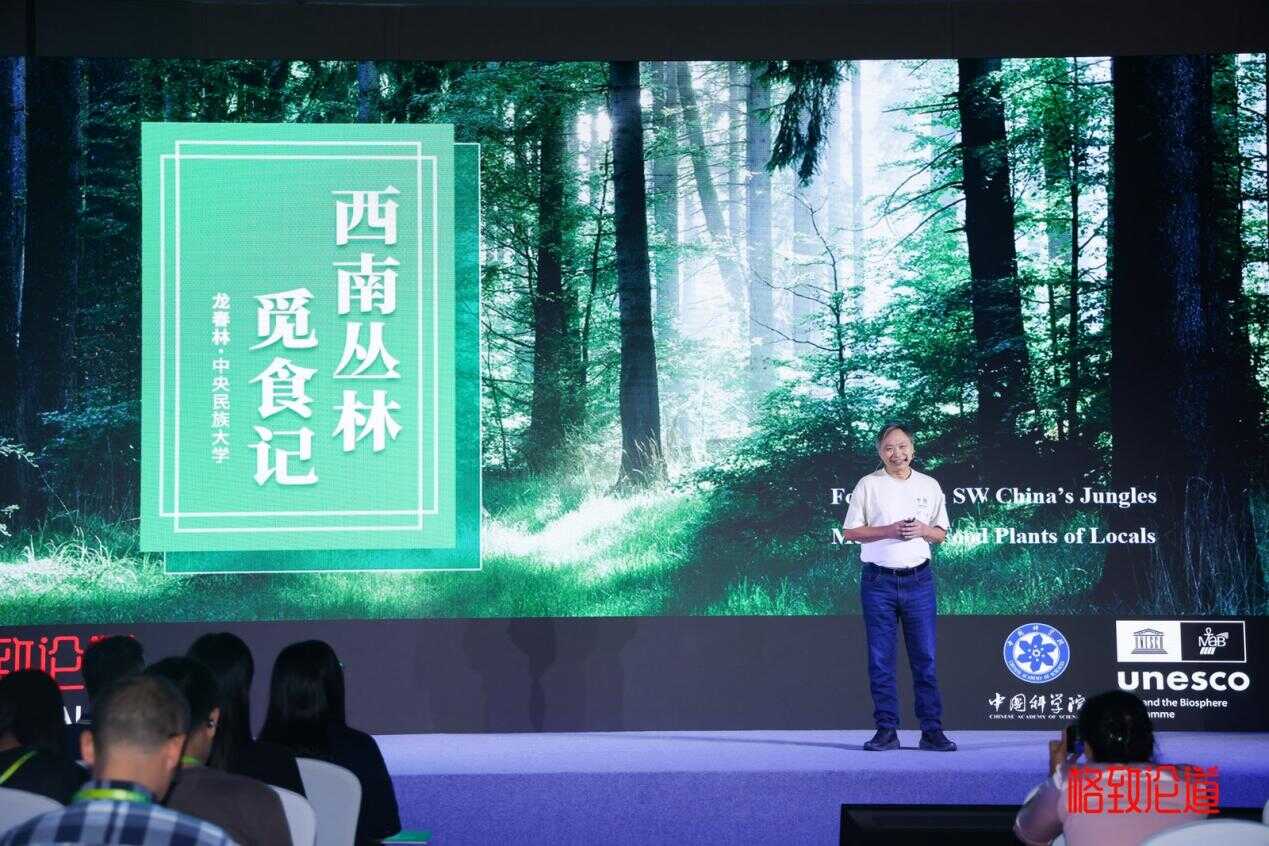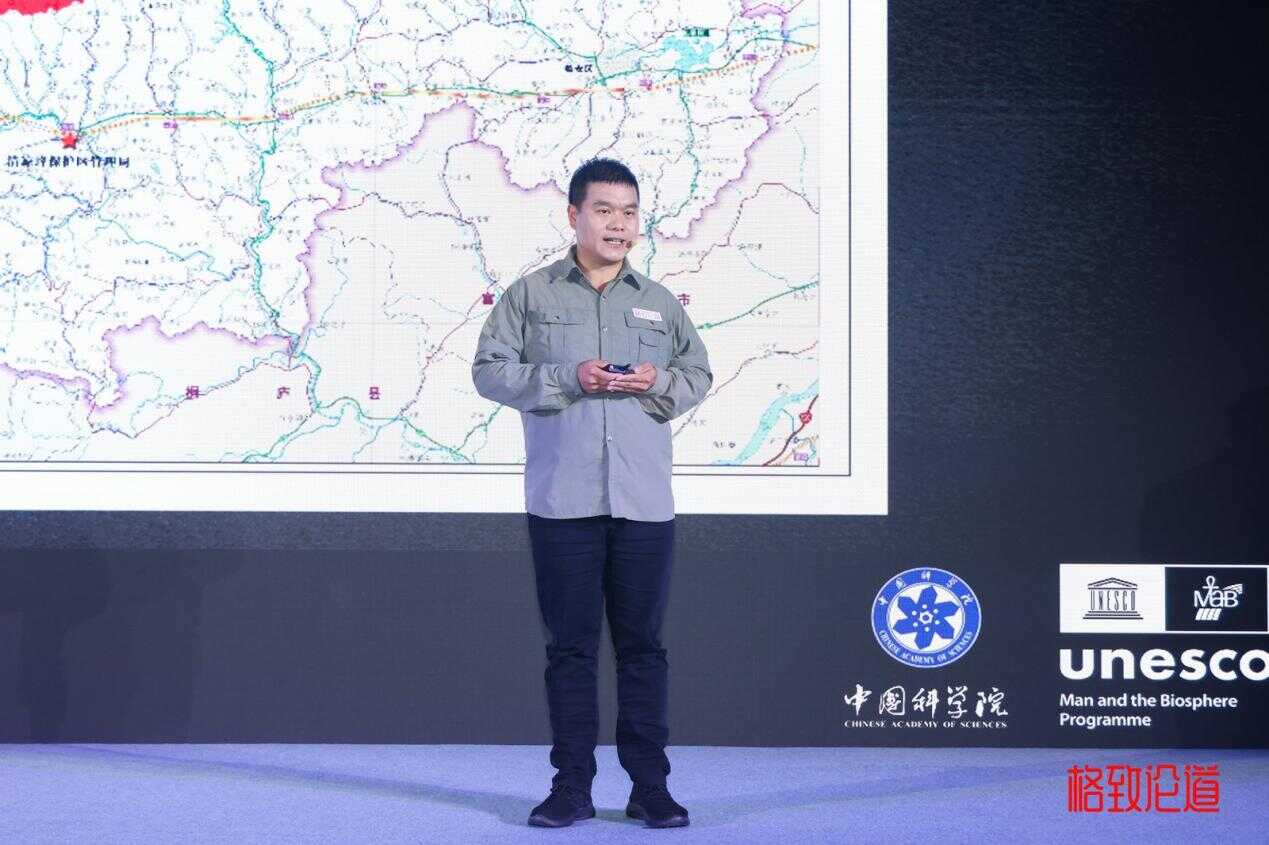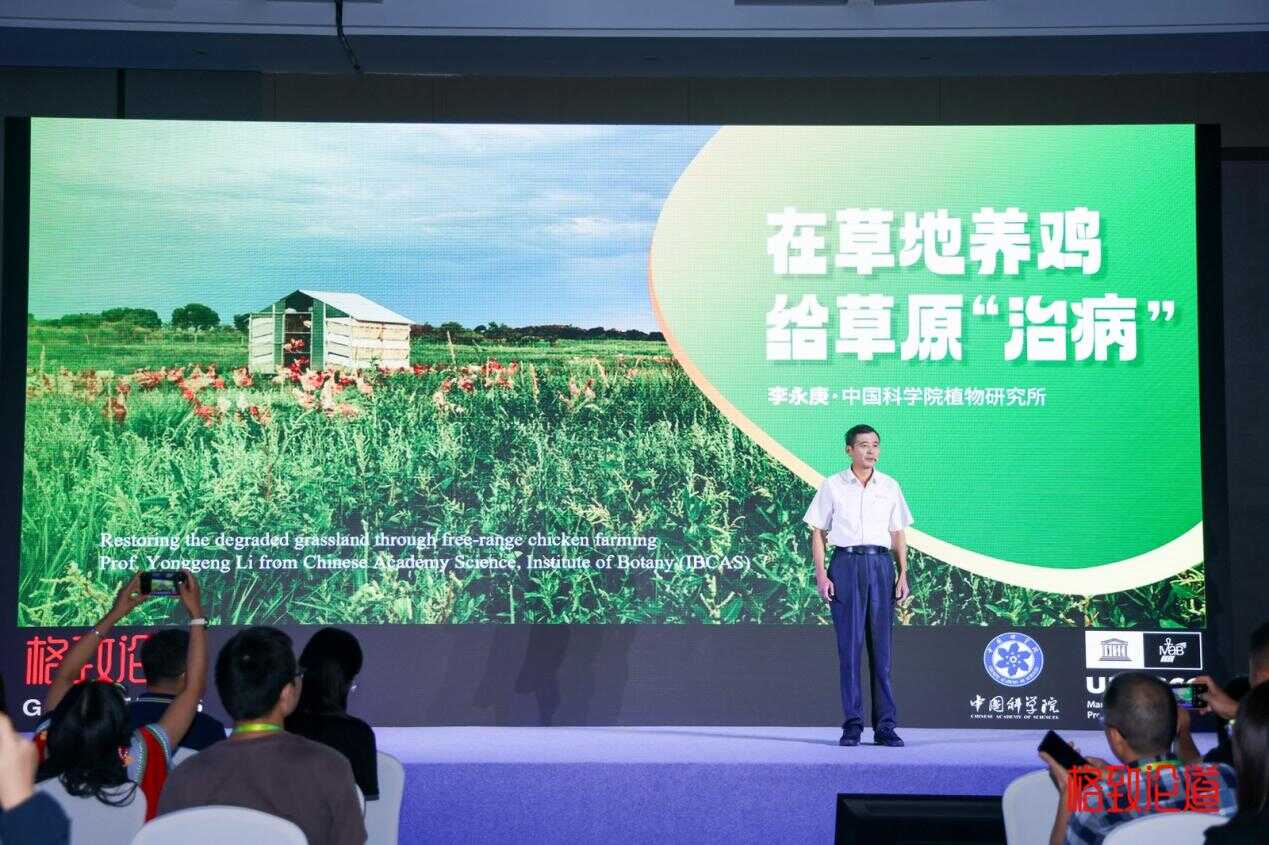All Beings Share This Verdant World — The 2025 "Gezhi Forum · Man and the Biosphere Programme" Special Lecture Successfully Held
The 122nd session of the "Gezhi Forum"—a science and culture lecture series hosted by the Chinese Academy of Sciences (CAS)—concluded successfully at the Hangzhou International Expo Center on Sept. 24. Serving as a parallel event to the 5th World Congress on Biosphere Reserves, this session also marked the third special lecture of the "Gezhi Forum" dedicated to the Man and the Biosphere Programme (MAB).
Guided by the principle of harmonious coexistence and development between humans and nature, the forum brought together six scientists, biosphere reserve managers, and conservationists from China and abroad to share firsthand experiences of engaging with the natural world. From trekking through mountain forests and remote wilderness to exploring expansive oceans, the speakers showcased their long-standing commitment to nature conservation across diverse fields.
Their stories of exploration shed light on the development and achievements of China’s participation in the MAB Programme from multiple angles. Notably, the lectures bridged China’s ecological philosophy of "Lucid Waters and Lush Mountains Are Invaluable Assets" with the global objectives of the MAB Programme, striking a deep chord with the on-site audience.

Wild vegetables and fruits are nature’s gifts. They not only enrich the flavors on our dining tables but also embody the life wisdom passed down through generations. However, most people remain unaware of their profound scientific value, cultural significance, and ecological importance.
Prof. LONG Chunlin from Minzu University of China, known as the "Scientist on the Tip of the Tongue," has spent more than 20 years exploring the wilderness and villages in Southwest China. By delving into practical topics—such as the origins of leaves used for wrapping zongzi (glutinous rice dumplings) and the medicinal properties of Sarcandra glabra—he has conducted in-depth research on the value of wild vegetables and fruits. In his view, these seemingly ordinary plants could become a crucial food source for humanity in the future.

China’s vast territory is home to abundant species resources, which deserve both exploration and protection. Equally important is the integration and collaboration of ecological conservation efforts between China and the rest of the world.
Prof. Kevin R. Messenger from the School of Life Sciences at Nanjing Forestry University first came to China, driven by his passion for animals and dedication to science. This young American, who could not speak a word of Chinese initially, has returned to the country time and again to explore its biodiversity treasures firsthand. His experiences studying amphibians and reptiles in the Shennongjia National Nature Reserve and Wuyi Mountains have allowed audiences to see a foreigner’s deep commitment to conserving China’s amphibian and reptile species—illustrating the profound meaning behind the phrase, “Science knows no borders, and conservation has no boundaries.”

The South China Sea is among the marine regions with the richest biodiversity in China, and it is home to a diverse array of marine mammals. However, human understanding of these "marine spirits" remains limited, relying primarily on a small number of stranding records.
Prof. LI Songhai from the Institute of Deep-sea Science and Engineering of CAS, has evolved from a young man who had never set eyes on a large river or lake prior to college into a prominent leader in China’s marine mammal research field today. Devoting himself to the vast expanse of the South China Sea, he conducts research with the perseverance of "seeking whales and exploring the sea". Leading his team, he has deciphered the unique "dialects" of whale groups, established China’s first cetacean resource database for the South China Sea, and confirmed for the first time the presence of an Indo-Pacific humpback dolphin (Sousa chinensis) population in the waters southwest of Hainan Island.

Qingliangfeng Mountain in Lin’an, Zhejiang Province, is home to the endangered South China sika deer (Cervus nippon kopschi). In this border area where economic development and ecological conservation intersect, how can we preserve a pristine habitat for these rare creatures? GUO Rui, Chief of the Scientific Research and Monitoring Section at the Administrative Bureau of Zhejiang Qingliangfeng National Nature Reserve, has found the answer. A native of Hanzhong, Shaanxi Province, born in the 1980s, he has regarded this mountain as his "home" and the deer as his "friends" for 13 years.
He has long dedicated himself to the frontline of biodiversity conservation, finding a meaningful life amid the mountain forests and alongside the sika deer. GUO’s persistence and commitment reveal a profound truth: the distance between humans and wild animals is not measured by GDP, but by the choices and actions that spring from the heart.

Tropical and subtropical grasslands are long-overlooked ecological treasures. Securing habitats for these "forgotten green territories" has become a critical issue in ecological conservation.
Prof. Kyle Warwick Tomlinson from the Xishuangbanna Tropical Botanical Garden of CAS, shares a deep bond with grasslands. He crossed oceans to Yunnan, China, and has worked tirelessly to develop conservation strategies for tropical and subtropical grassland and savanna ecosystems in East Asia, while also establishing detailed archives for these important vegetation types. His scientific research reveals that every overlooked ecological system holds the key to maintaining the balance of the biosphere.

Twenty-five years ago, Prof. LI Yonggeng from the Institute of Botany of CAS, ventured alone into the Hunshandak Sandy Land—a vast expanse of sand once described as having no signs of human habitation. Faced with the desert’s swirling yellow sands, he resolved to restore the area to a land abundant with water and lush grass.
To address the challenge of sustainable grassland development, he broke away from traditional management approaches and pioneered an innovative model of "raising chickens to manage grasslands"—a win-win solution that achieves both ecological restoration and increased income for herdsmen. Today, the Hunshandak Sandy Land has gradually transformed from a desolate, barren desert into a vibrant ecological model, reclaiming the green landscape once known as the "Back Garden of the Upper Capital of the Yuan Dynasty."

LIU Jiaxin, an on-camera journalist from China Global Television Network (CGTN), served as the host of this event. Her fluent bilingual proficiency and elegant, intellectual hosting style offered a pleasant viewing experience to the on-site audience.
The "Gezhi Forum" is committed to exploring developments in science and technology, education, life, and the future, guided by the spirit of "studying things to attain knowledge"—a traditional Chinese philosophical concept that emphasizes exploring nature and truth through empirical observation. Sponsored by the Computer Network Information Center of CAS and the Office of the Leading Group for Cyberspace Affairs of CAS, the forum receives technical support from China Science Popularization, the Science Popularization Cloud Platform of CAS.
